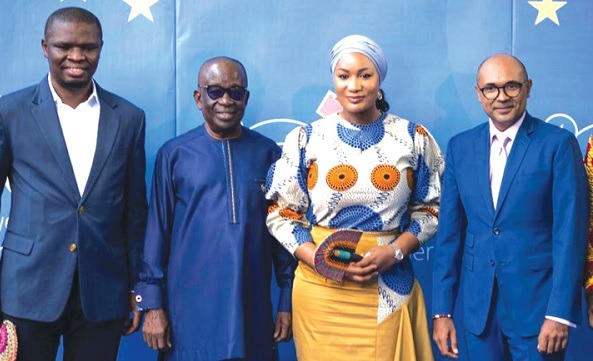The European Union (EU) will this month launch a €34 million initiative to support young Ghanaian jobseekers.
At least, €25m of the amount will cater for the EU-Ghana Pact for Skills, while the remaining €9 million will be dedicated to the EU’s Jobs, Migration, and Development project.
This was announced by the EU Ambassador to Ghana, Irchad Razaaly, at this year’s Europe Day in Accra last Tuesday.
The Pact for Skills is a key building block of the European Skills Agenda and aims to mobilise investment flowing into upskilling and reskilling the working-age population, engage stakeholders, and facilitate cooperation in the skills and education sector.
The European Skills Agenda’s top priority is to reskill and upskill people so that everyone can benefit from the green and digital transition of Europe.
The Charter of the Pact for Skills demands that signatories promote a culture of lifelong learning for all; build strong skills partnerships; monitor skills supply/demand and anticipate skills needs; and work against discrimination and for gender equality and equal opportunities.
EU Day
The event was on the theme: “Celebrating Youth and Skills”.
It was attended by members of the diplomatic corps, ministers of state and other government officials; traditional rulers, civil society organisations, members of academia, and the media.
The Ga Mantse, King Nii Tackie Teiko Tsuru II, and the wife of the Vice-President, Second Lady, Mrs. Samira Bawumia, were also present.
There was also an official exhibition of projects being undertaken by Ghanaian youth with sponsorship from the EU.
Europe Day is held on May 9 each year to celebrate the peace and unity in Europe.
The day also marks the anniversary of a former President of the European Parliament, Robert Schuman’s declaration in 1950, proposing the formation of an economic partnership between France and Germany.
His vision was to create a union within Europe that would make it impossible for war to occur among European nations.
Priority
The EU Ambassador explained that supporting and including the youth to contribute to the prosperity of nations was an EU priority, both in Europe and across their international partnerships.
In line with that, he said, the EU had just announced the European Year of Skills to help talented youth achieve their professional ambitions and make a valuable contribution to the community, adding that: “A young, dynamic and skilled workforce reduces unemployment and boosts sustainable and inclusive growth”.
Highlighting some strides made in the country, the Ambassador disclosed that the EU had supported over 100,000 young jobseekers to gain skills and training through a number of projects.
The EU, he said, had also inaugurated the Ghanaian-European Centre for Jobs, Migration and Development, in partnership with Germany and the Ghana government, to provide direct support to returning migrants and resident Ghanaians looking for jobs and training in Ghana and Europe.
He said the EU, through its Erasmus+ programme, sent 45 talented Ghanaian students to European universities last year.
Gratitude
The Minister of Youth and Sports, Mustapha Ussif, expressed gratitude to the EU for supporting Ghana and other African countries to strengthen their health systems during the pandemic.
“We are also grateful to the EU for the continuous support for the youth in the area of education through the provision of scholarships for Ghanaian students to study in various European universities.
“We are hopeful that other EU projects in the pipeline aimed at empowering and developing the youth will be launched soon for mutual benefits,” he said.
The minister further noted that the initiatives undertaken by the EU were a testament to the strong partnership and cooperation between the country and the EU.
“Ghana remains committed to strengthening our partnership with the EU, promoting trade, investment, and sports, as well as deepening our cooperation in other sectors of our economies,” he said.
Source: graphic.com.gh


